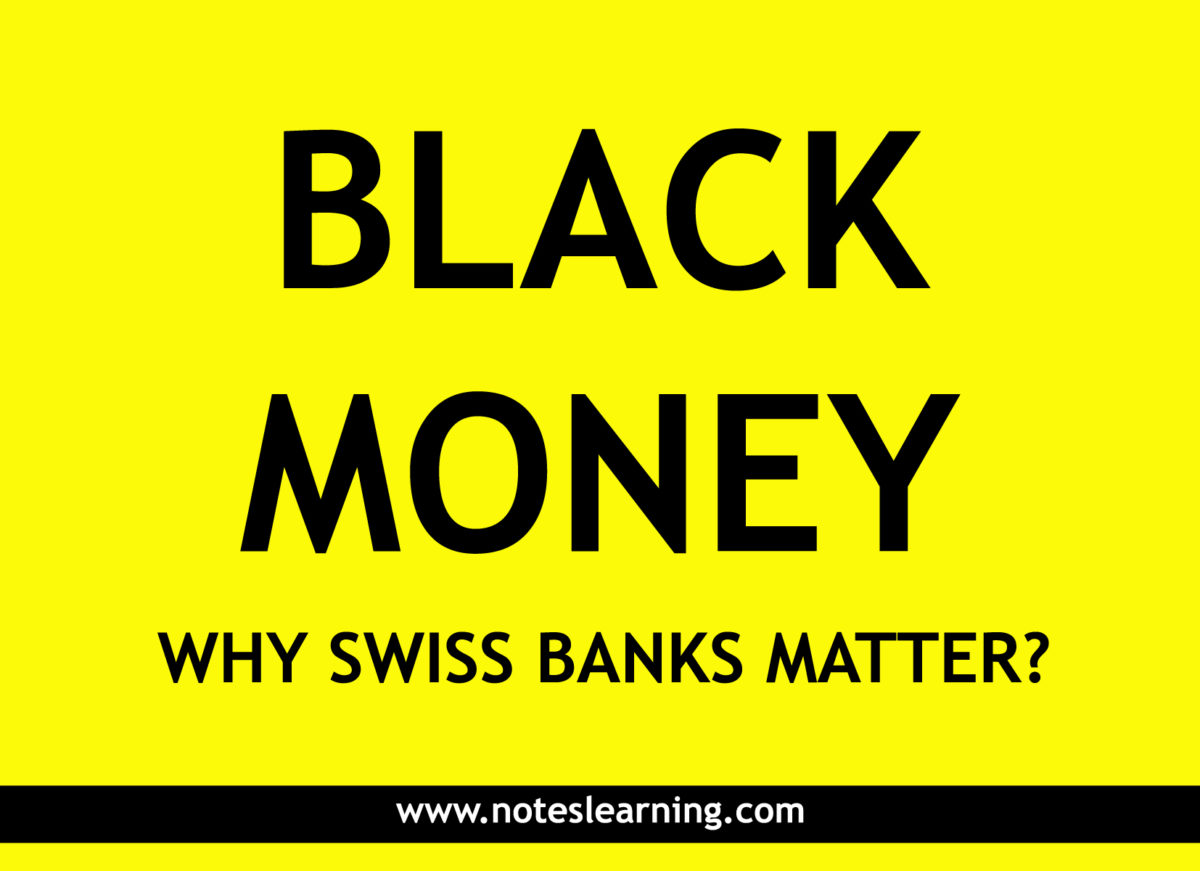Introduction to Black Money
Black money is defined as all the earnings acquired through illicit activities and otherwise all the legal income that is not recorded for tax purposes. Terms such as parallel economy, black incomes, unaccounted economy, illegal economy and irregular economy are synonyms for Black money. Black money is all the unaccounted money from legal or illegal activities. In a transaction, if you receive 60% of the transaction by check and 40% of the transaction in unreported cash. The 40% of unreported cash is black money. Similarly, there are a large number of businesses which are unknowingly contributing to black economy.
Black money is not easy to trace. It exists in every form of employment and economic activities from small shop vendors to exclusive business houses. Black money represents the intention of every individual involved in economic activities.
Every economy suffers from the presence of black money, therefore, it is illegal to keep unaccountable money. Respective governments monitor the black economy activities time and often.
Black Money and Swiss Banks
Swiss banks are one of the most popular and widely used places to park the black money. Swiss banks, unlike others, will never release account details, even if requested by the government of the depositor’s country. They require large deposits, and depositors require confidentiality; it is a mutually beneficial deal. For the same reason, in 2019, Rs. 6,625 Crore of Indian money was in Swiss Banks.
Meanwhile, Swiss economy is one of the world’s most stable economies with no major conflicts in hundreds of years. Furthermore, Swiss law mandates that banks meet high capital requirements and provide robust depositor protection, thus ensuring that any deposits are protected from financial disaster and conflict.
Their promise of Privacy, Code of Secrecy and stern Banking ethic and law makes Swiss banks one of the safest places for Black Money holders to dump all their money.
Swiss banks are most trusted for black money for following reasons:
- Privacy
A relationship with a Swiss bank is comparable to doctor/patient confidentiality or sharing sensitive information with an attorney. The law and banking system in Switzerland prohibits managers from disclosing the existence of the account and any other information about it without account holders’ permission.
Just like if doctors or attorneys abuse trust, you must file a lawsuit; in Switzerland, if a banker discloses information about a bank account without permission, the Swiss public prosecutor initiates an immediate prosecution. Bankers could face up to six months in prison and a 50,000 Swiss franc fine. You can also sue the bank for monetary damages. Needless to say, Swiss banks take great care to preserve your privacy.
- Secrecy Code
Swiss bankers have had a code of confidentiality regarding banking and account holders for almost 300 years. It all started with the kings of France, who demanded absolute secrecy, had enormous financial needs, and could always repay their loans.
Banking secrecy legislation also dates back to this period of time. In 1713, the Great Council of Geneva created regulations requiring bankers to preserve customer registers but forbidding them from sharing the information with anyone other than the client unless the City Council agreed to the need to release information.Swiss Banks became a safe refuge for Black Money holders as a result of this code of secrecy.
- Swiss bank accounts and the laws
In the United States, law enforcement authorities, the judicial system, and even private citizens can acquire access to many types of financial information. However, in Switzerland, neither bank executives nor staffs are permitted to share any account or account holder information to anyone, including the Swiss government.
Swiss bankers keeps Client confidentiality under Article 47 of the Federal Law on Banks and Savings Banks, which went into effect on November 8, 1934. According to the article, “anyone acting in his/her capacity as member of a banking body, as a bank employee, agent, liquidator or auditor, as an observer of the Swiss Federal Banking Commission (SFBC), or as a member of a body or an employee belonging to an accredited auditing institution, is not permitted to divulge information entrusted to him/her or of which he/she has been apprised because of his/her position.”
- Opening and Using of Swiss Bank Accounts
Non-residents of Switzerland who want to open a Swiss bank account must be at least 18 years old, accord
ing to Swiss legislation. Aside from that, there aren’t many limits. Accounts can be in practically any currency, however the Swiss franc, US dollar, Euro, or Sterling are the most popular, and there is generally no minimum balance requirement to start one.
Article By: Saurav Giri
Reference

